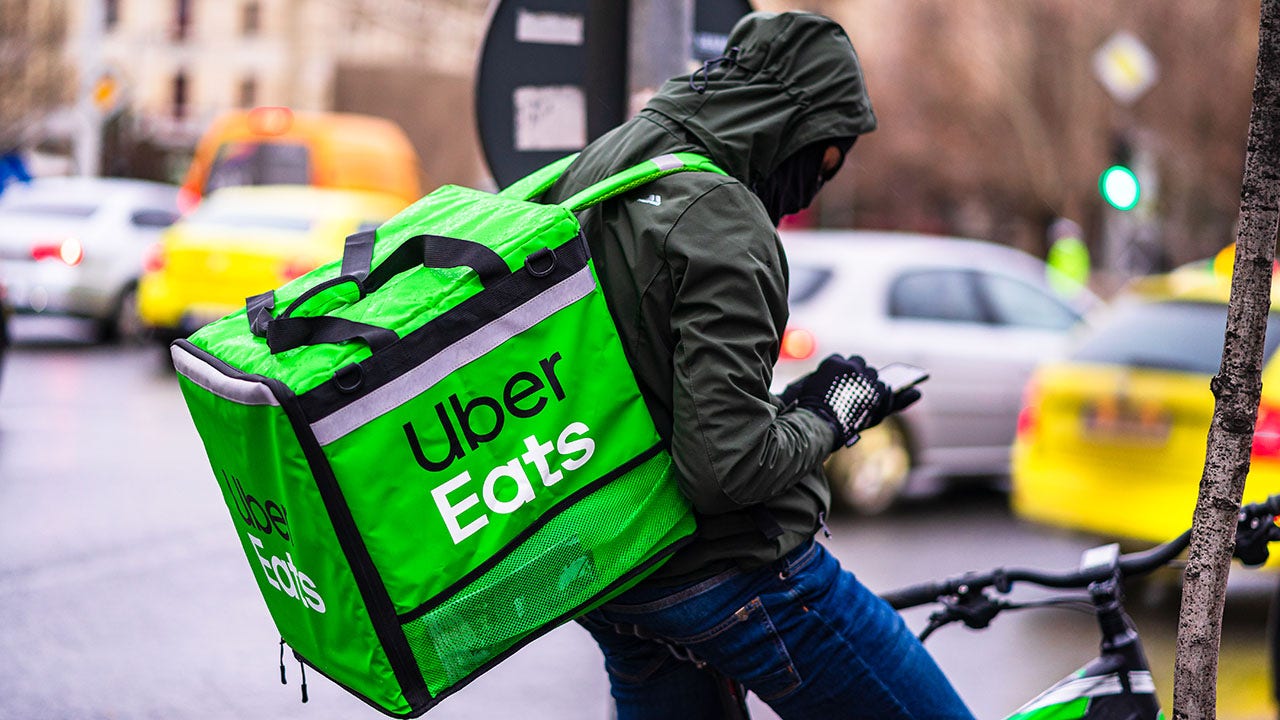Finance
California court rules against Uber, says company must face employee’s lawsuit

A California court on Monday said Uber Technologies must face a lawsuit claiming it should have covered Uber Eats drivers’ work-related expenses.
In a unanimous decision, the California Supreme Court ruled Uber Eats driver Erik Adolph did not give up his right under state law to sue on behalf of a large group of workers, even though he signed an agreement to bring his own work-related legal claims in private arbitration.
DOMINO’S, UBER PARTNER ON PIZZA ORDERING, DELIVERIES
Adolph sued Uber in 2019 claiming the company misclassified Uber Eats drivers as independent contractors rather than employees, who must be reimbursed for work expenses under California law.
A California law called the Private Attorney General Act (PAGA) allows workers to sue for employment law violations on behalf of the state and keep one-quarter of any winnings, with the rest of the money going to the state to fund an agency that enforces labor laws.
Meanwhile, the California Supreme Court said nothing in that law bars workers from pursuing claims on their own behalf in arbitration while separately litigating large-scale claims in court.
In 2022, a U.S. Supreme Court ruling involving Viking River Cruises said companies could force individual PAGA claims into arbitration, and potentially mean that California employers will face more large-scale lawsuits.
NYC SUED BY FOOD DELIVERY SERVICES OVER NEW MINIMUM WAGE LAW
Uber lawyer Theane Evangelis said that the ruling conflicts with the Viking River decision and violates a federal law that requires enforcing valid arbitration agreements.
“We are considering our appellate options,” she said.
LYFT DRIVERS ARE EARNING MORE PAY — HERE’S HOW
Michael Rubin, who represents Adolph, said the court ruling could make companies reconsider forcing workers’ claims into arbitration if large-scale PAGA lawsuits can still proceed in court. Rubin represented the plaintiff in the Viking River case.
The U.S. Chamber of Commerce and other groups filed briefs in Monday’s case warning the California Supreme Court that a ruling against Uber could encourage workers to file meritless lawsuits and pressure companies to settle them.
The court said those concerns should be directed at state legislators, who have the power to change the law.
Reuters contributed to this report.
Read the full article here

-
Uncategorized6 days ago
The Surge of Crypto Slots: A New Period in Online Pc Gaming
-
Uncategorized6 days ago
Kəşf Etmək Binance Coin Kazino Saytları Dünyasını
-
Uncategorized7 days ago
The Increase of Dogecoin Casino Sites: An Extensive Introduction
-
Uncategorized6 days ago
High Roller Online Casinos: Inside the Globe of Elite Betting
-
Uncategorized2 days ago
The Comprehensive Overview to Tutoring Networks







